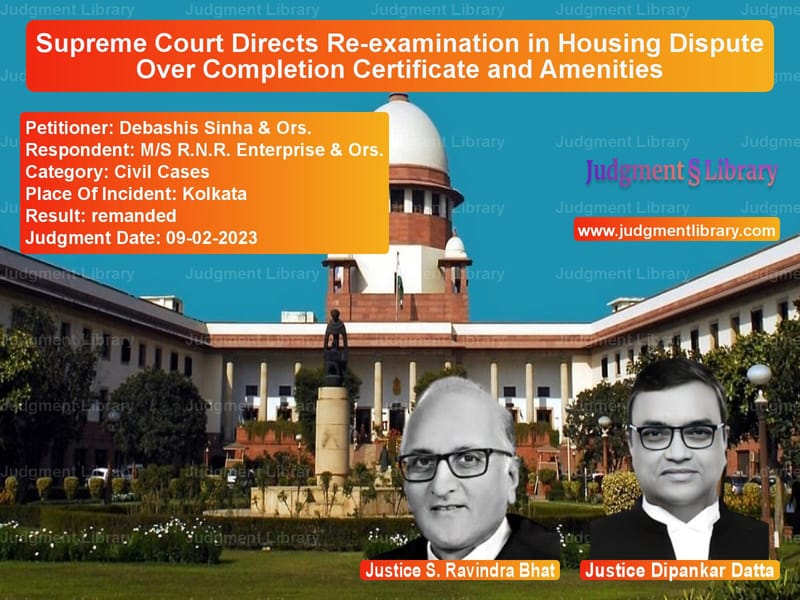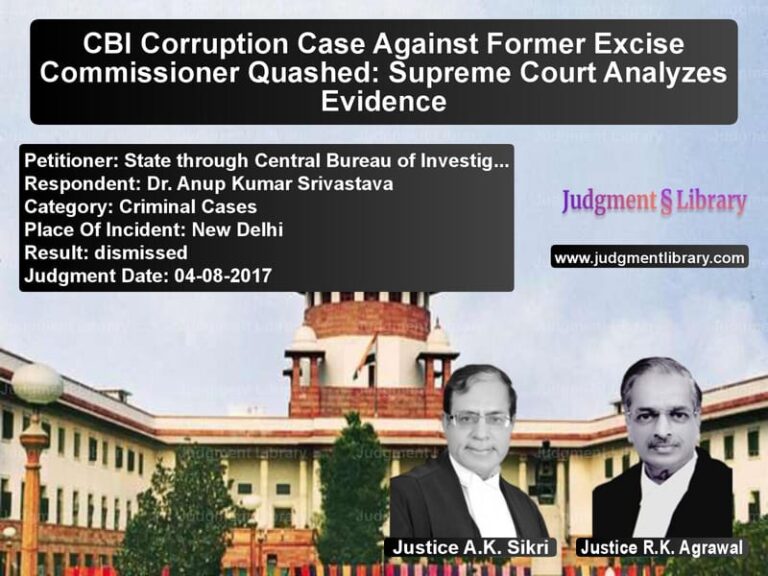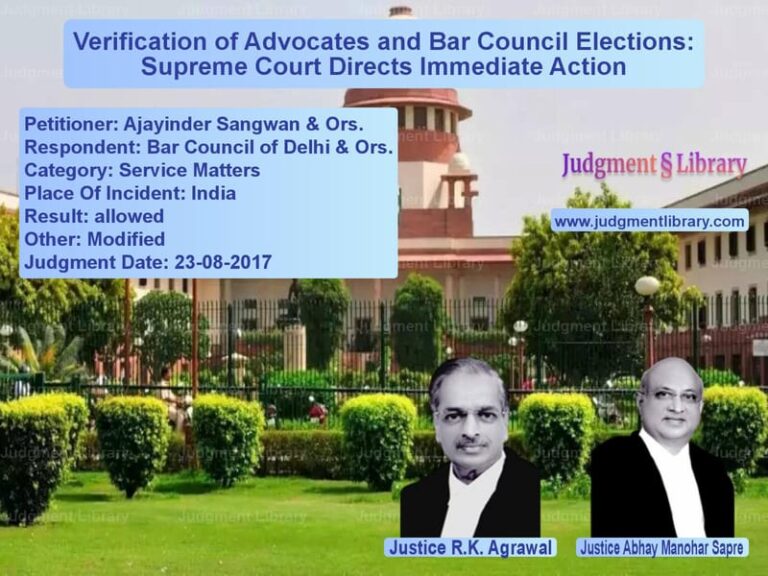Supreme Court Directs Re-examination in Housing Dispute Over Completion Certificate and Amenities
The Supreme Court of India recently ruled on a significant case involving consumer rights in housing projects. In Debashis Sinha & Ors. vs. M/S R.N.R. Enterprise & Ors., the Court addressed issues of builder accountability, consumer protection, and the responsibility of developers to fulfill their promises. The judgment sheds light on the obligations of real estate developers towards homebuyers and the role of consumer courts in enforcing these rights.
Background of the Case
The dispute arose when multiple homebuyers, totaling 36 flat owners, filed a complaint against the builder, M/S R.N.R. Enterprise. The complaint was based on several grievances:
- The builder failed to obtain the Completion Certificate from the Kolkata Municipal Corporation (KMC), rendering the residents’ occupancy uncertain.
- Several promised amenities such as a playground, a community hall, a concrete road, and a proper water supply were not provided.
- The builder misrepresented the housing project in advertisements, showcasing a beautified lake and landscaped gardens that never materialized.
The residents alleged that they had paid the full consideration amount for their flats, yet they were left without essential services, which constituted deficiency in service under the Consumer Protection Act, 1986.
Complaint Before the NCDRC
The appellants approached the National Consumer Disputes Redressal Commission (NCDRC) in 2008, seeking the following reliefs:
- Direction to the builder to obtain the Completion Certificate.
- Correction of construction defects as identified by an independent valuer.
- Provision of amenities such as a community hall, generator backup, water filtration plant, gymnasium, and gas pipeline.
- Compensation of Rs. 1.8 crore for the inconvenience caused, along with legal costs.
The developer opposed the claim, arguing that the complaint was time-barred and that a joint complaint by 36 homeowners was not legally maintainable. They also claimed that some amenities were dependent on contributions from residents and that several buyers had taken possession of their flats without raising objections.
NCDRC’s Decision
The NCDRC dismissed the complaint, holding that:
- The builder’s failure to obtain the Completion Certificate was not solely their responsibility, as residents had also violated the law by occupying their flats without one.
- The promised amenities were exaggerated, and there was no clear evidence proving their absence.
- The complaint appeared to be a strategy to pressure the builder for additional compensation.
Despite acknowledging that the builder had engaged in unfair trade practices, the NCDRC did not rule in favor of the residents.
Supreme Court’s Observations
The Supreme Court disagreed with the NCDRC’s findings and found multiple flaws in its reasoning. The Court emphasized:
“Once a developer advertises and sells flats with specific amenities, they are bound to fulfill their promises. Any failure constitutes a clear deficiency in service.”
The Court criticized the NCDRC’s logic that flat owners should have known what they were purchasing, stating:
“Most consumers purchase homes based on advertisements and promotional materials. It is the responsibility of consumer courts to examine whether these representations were honored.”
Key Findings of the Supreme Court
- Builders must ensure they obtain the Completion Certificate before transferring possession to buyers.
- Failure to provide promised amenities amounts to deficiency in service under the Consumer Protection Act.
- Consumer courts must closely examine the claims made in housing project advertisements.
- Occupying a flat without a Completion Certificate does not waive a buyer’s right to seek redress.
Final Judgment
The Supreme Court set aside the NCDRC’s order and directed a fresh hearing on the following terms:
- The case was remanded to the NCDRC for reconsideration.
- The NCDRC must verify if the promised amenities were delivered.
- The developers must be held accountable for misleading advertisements.
- Monetary compensation was not awarded due to the lack of clear documentation.
Implications of the Judgment
This judgment sets an important precedent for real estate disputes. Key takeaways include:
- Accountability of developers: Builders cannot escape liability by transferring the responsibility of obtaining a Completion Certificate to homebuyers.
- Stronger consumer rights: Homebuyers can challenge misleading advertisements and demand the amenities promised in brochures.
- Clearer obligations for consumer courts: Consumer courts must critically assess builder commitments instead of dismissing cases on technical grounds.
By sending the case back to the NCDRC, the Supreme Court reaffirmed the rights of homebuyers and reinforced the legal obligations of developers.
Petitioner Name: Debashis Sinha & Ors..Respondent Name: M/S R.N.R. Enterprise & Ors..Judgment By: Justice S. Ravindra Bhat, Justice Dipankar Datta.Place Of Incident: Kolkata.Judgment Date: 09-02-2023.
Don’t miss out on the full details! Download the complete judgment in PDF format below and gain valuable insights instantly!
Download Judgment: debashis-sinha-&-ors-vs-ms-r.n.r.-enterpris-supreme-court-of-india-judgment-dated-09-02-2023.pdf
Directly Download Judgment: Directly download this Judgment
See all petitions in Consumer Rights
See all petitions in Property Disputes
See all petitions in Contract Disputes
See all petitions in Judgment by S Ravindra Bhat
See all petitions in Judgment by Dipankar Datta
See all petitions in Remanded
See all petitions in supreme court of India judgments February 2023
See all petitions in 2023 judgments
See all posts in Civil Cases Category
See all allowed petitions in Civil Cases Category
See all Dismissed petitions in Civil Cases Category
See all partially allowed petitions in Civil Cases Category







